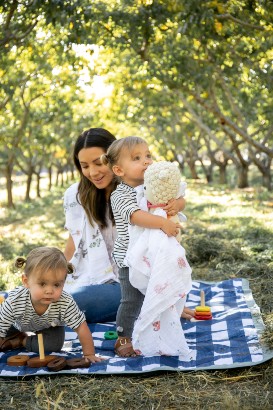We love to spend time in DOC camps, usually in the middle of nowhere as they tend to have stunning surroundings and can be less crowded than campgrounds in bigger spots. But if you’re a first-time camper, it might be a good idea to stay closer to home or other amenities. Here are a few things to think about when choosing your camping spot.
Travel Times
When choosing your campground be aware of driving times from home and also think about when you’ll be travelling. Boxing Day and New Year’s Day can be ridden with delays as everyone heads away at the same time, so think about the dates you're travelling on and where you’re going to / through to avoid being stuck in traffic.
Leave early if you can. It’s hard to pack up the car and get out the door early with little ones in tow, but try to get away as early as you can. That gives you plenty of time for stops along the way and you won’t feel pressured to keep driving to get to your destination quickly.
If you’re travelling more than about 5 hours, consider breaking the journey and staying in a cabin or motel for a night on the way. Driving long distances takes a long time with kids, so it may be best to keep it shorter, especially if you’re only away for a few days. Don’t forget to allow time to set up your tent before it gets dark (especially if it's new)!
Campground Location
Think about how close you want to be to amenities - do you want quick, convenient access to supermarkets and cafes or are you happy to be away from it all? Being in a small town means you can nip out to a supermarket if there’s anything you need, whether it’s more food, sunscreen or something from a pharmacy. A short walk/car ride can make all the difference - especially if there’s a cafe with great coffee nearby!
Think about access to water. If you’re near the beach or rivers, make sure there’ll be enough space between the tent and the water and ensure you can watch your children easily, especially the little ones. You also don’t want to be too close to a river because of the risk of flooding. Even if the forecast is good, rivers can rise in a very scary quick time, as we found out when a metre of water went through our tent in a flash flood.
Similarly, a campground with lots of shade would be ideal. It can get hot in tents and sitting under a tree with the breeze is an easy way to keep babies and kids cool.
When you arrive take a look around to watch out for any immediate hazards, particularly if your baby is mobile and loves to climb.
Camp Amenities
If you’re new to camping or it’s your first time with little ones, consider choosing a campground with lots of amenities. Think BBQ’s, kitchens (with equipment), a decent toilet block, playgrounds and more. These can take the pressure off packing as you don’t need to take the proverbial kitchen sink. Younger kids are also likely to be happier with warm showers and a proper toilet vs a ‘scary’ long drop. You can leave the full wilderness experience for when the kids are older.
Amenities such as playgrounds, jumping cushions and pools are an easy way to keep the kids entertained without having to go too far, and you’ll often find other families too, so the older ones can make friends easily - taking the pressure off mum and dad for entertainment!


